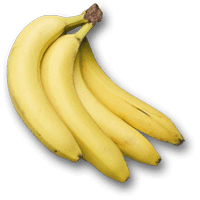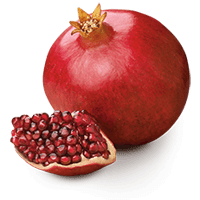How Much Vitamin C Is In A Pomegranate

vs

Summary
Bananas are higher in carbohydrates and glycemic index. They are richer in potassium, magnesium, and manganese. They contain vitamin C, B6, and A. Pomegranates have lower carbohydrates and a lower glycemic index. They are richer in copper, Vitamin C, K and K, and dietary fibers.
Table of contents
- Introduction
- Nutritional content comparison
- Protein
- Fat
- Carbohydrate
- Vitamin content comparison
- Vitamin C content
- Mineral content comparison
- Health impacts
- Diabetes
- Cancer
- Downsides
- Variations and methods of consumption
- References:
Introduction
Bananas are one of the fruits that are commonly used around the world. They are indigenous to India and Southeast Asia, but it is found in nearly every household worldwide. Its shelf life is not that long, approximately five days, as it will start to overripe.
It has a wide range of usage. It is consumed raw, made into a smoothie, or even used as an ingredient for baking.
Bananas that are consumed nowadays are different than the ancestor banana plants. Bananas used to have seeds and come in much smaller sizes. In the first century, farmers did a modification on wild-type bananas. From that point and on, farmers spread the domestic banana.
Pomegranate is a famous food in the Mediterranean, Caucasian, and Asian cuisines and cultures. The pomegranate was one of the fruits that authors mentioned in different ancient cultures. The pomegranate symbolized prosperity from ancient Egyptian culture, and medical homeopath doctors used it to treat tapeworms.
In Armenia, it is considered a cultural fruit and symbol and is used to make wine.
Pomegranate can be consumed as juices or in its raw state. Various types taste differently and range from the pale pink sweet grains to the bloody red sour or sweet ones.
In this article, we will be comparing the nutritional content of both banana and pomegranate, the vitamin and mineral content, health impacts, and the variety of uses.
Nutritional content comparison
Banana and pomegranate have different glycemic indices. However, both are considered low glycemic index foods. The glycemic index of bananas is 51, which is lower than 55, categorizing it as a lower glycemic index. On the other hand, the glycemic index of pomegranate is 18.
Protein
Bananas contain 1.1g of proteins in 100g. The average medium-sized banana weighs around 120g which makes its protein content 1.32g.
The protein content of 100g of pomegranate is 1.7g. The serving size of pomegranate is approximately 180-200g which makes the protein content on average 3.1g.
Fat
Bananas contain lower fat amounts than pomegranate, 0.3g for bananas and 1.2g for pomegranate, respectively.
Even though there is a difference between them, we can neglect the fat content of both.
Carbohydrate
100g of bananas contain 23g of carbohydrates; an exciting aspect of this composition comes from the notion of the type of carbohydrate. In unripe bananas, the carbohydrate content is mostly starch. However, as the banana ripens, the carbohydrate content becomes sugar. The difference is significant because, in unripe bananas, the starch is resistant to absorption in the digestive tract; thus, it is called resistant starch. The resistant starch acts similarly to dietary fibers.
Pomegranates contain 19g of carbohydrates which is relatively lower than the carbohydrate content of bananas.
The dietary fiber of bananas is lower than that of pomegranates. Bananas contain 2.6g of dietary fibers. On the other hand, pomegranates contain 4g per 100g. The daily requirement is 25-30g a day.
Vitamin content comparison
The major vitamin composition of banana per 100g is as following:
- Vitamin C: 8.7mg
- Vitamin B6: 0.367mg
- Vitamin A: 19.2mcg
The major vitamin composition of pomegranate per 100g is as follows:
- Vitamin C: 10.2mg
- Vitamin K: 16.4mcg
- Vitamin E: 0.6mg
Vitamin Comparison
Vitamin comparison score is based on the number of vitamins by which one or the other food is richer. The "coverage" chart below show how much of the daily needs can be covered by 300 grams of the food
![]()
4
:
6
![]()
Contains more Vitamin A +∞%
Contains more Vitamin B2 +37.7%
Contains more Vitamin B3 +127%
Contains more Vitamin B6 +389.3%
Contains more Vitamin C +17.2%
Contains more Vitamin E +500%
Contains more Vitamin B1 +116.1%
Contains more Vitamin B5 +12.9%
Contains more Vitamin K +3180%
Contains more Folate +90%
Contains more Vitamin A +∞%
Contains more Vitamin B2 +37.7%
Contains more Vitamin B3 +127%
Contains more Vitamin B6 +389.3%
Contains more Vitamin C +17.2%
Contains more Vitamin E +500%
Contains more Vitamin B1 +116.1%
Contains more Vitamin B5 +12.9%
Contains more Vitamin K +3180%
Contains more Folate +90%
Vitamin C content
Bananas and pomegranates are rich in vitamin C. However, pomegranates contain much more vitamin C compared to bananas. The daily recommended value of vitamin C is between 65-90mg.
Mineral content comparison
Bananas are rich in potassium, magnesium, and manganese. On the other hand, pomegranate is mostly richer in copper and potassium.
The potassium content of bananas is higher than the pomegranates.
Mineral Comparison
Mineral comparison score is based on the number of minerals by which one or the other food is richer. The "coverage" chart below show how much of the daily needs can be covered by 300 grams of the food
![]()
3
:
5
![]()
Contains more Potassium +51.7%
Contains more Magnesium +125%
Contains less Sodium -66.7%
Contains more Iron +15.4%
Contains more Calcium +100%
Contains more Copper +102.6%
Contains more Zinc +133.3%
Contains more Phosphorus +63.6%
Contains more Potassium +51.7%
Contains more Magnesium +125%
Contains less Sodium -66.7%
Contains more Iron +15.4%
Contains more Calcium +100%
Contains more Copper +102.6%
Contains more Zinc +133.3%
Contains more Phosphorus +63.6%
Health impacts
Bananas are an optimal source of energy pre, during, and post sports exercise, as it boosts energy and performance. In addition, bananas are the best alternative to chocolate or energy bars, containing refined sugars and additives. (1)
Pomegranates contain ellagic acid, which has antioxidative properties and anti-aging properties. It helps rejuvenate the skin.
Diabetes
Bananas have anti-diabetic properties. The anti-diabetic property is due to its activity over a compound that breaks down long and complex sugar molecules into smaller ones to absorb them. Bananas have enzymes that stop this activity, thus keeping sugar molecules undigested and clearing them out. (2)
Pomegranates also have anti-diabetic properties. However, it has a different mechanism than that of bananas. They have hypoglycemic characteristics, which means they tend to lower blood sugar levels. (3)
Cancer
Bananas contain lectins which have a distinctive role in cancer cell interventions. Banana lectins are effective in suppressing cancer cell proliferation. Which in turn also interferes in the reduction of cancer metastasis. (3)
Pomegranates are rich in antioxidants and anticarcinogenic components that suppress and reduce the risks of different types of cancer among (4)
- Breast cancer
- Prostate cancer
- Liver cancer
- Skin cancer
Downsides
Bananas cause increased amounts of mucus. On an empty stomach, eating a banana may cause acid reflux and indigestion.
On the other hand, for pomegranates, consuming the seeds in high amounts causes constipation and indigestion.
It is also recommended not to consume pomegranate while taking statins, cholesterol medication, as it might damage the kidneys, causing rhabdomyolysis; breaking of the kidney muscles.
Variations and methods of consumption
Bananas and pomegranates have a wide range of consumption. They are found as dried fruits, juices, smoothies, etc.
We can use bananas in baking. They are primarily used in vegan cuisine. An egg is replaced with banana in the ingredients specifically for baking due to their similar consistency.
They are also used as smoothies mixed with different fruits and chocolate (cocoa powder).
Some Asian cuisines, like the Indonesian and Malaysian cuisines, fry bananas, are called Pisang Goreng.
Pomegranates also have a variety of usages. They are sometimes used as garnishes on different dishes.
A widely used juice is the pomegranate juice which is consumed all over the world. Pomegranate can also be made into molasses and wine.
When juices or smoothies are consumed, one must be careful of the different aspects like sugar or added components. For example, pomegranate juice is healthy. However, it is packed with sugars because more than one pomegranate is squeezed to make 1 cup of pomegranate juice. Consuming the juice also means that the fiber content decreases as the seeds are removed during the juicing process.
The whole banana is just blended for bananas consumed as smoothies, so no nutritional content will be gone to waste. However, we must consider additional sugar.
References:
- https://www.ncbi.nlm.nih.gov/pmc/articles/PMC3355124/
- https://pubmed.ncbi.nlm.nih.gov/24752944/
- https://www.ncbi.nlm.nih.gov/pmc/articles/PMC6272006/
- https://www.ncbi.nlm.nih.gov/pmc/articles/PMC5806496/

Education: Haigazian Medical University
Last updated: November 29, 2020
Infographic

Vitamin and Mineral Summary Scores
The summary score is calculated by summing up the daily values contained in 300 grams of the product. Obviously the more the food fulfills human daily needs, the more the summary score is.
Vitamin Summary Score
16
![]()
16
![]()
Mineral Summary Score
13
![]()
15
![]()
Macronutrients Comparison
Macronutrient comparison charts compare the amount of protein, total fats, and total carbohydrates in 300 grams of the food. The displayed values show how much of the daily needs can be covered by 300 grams of food.
Protein
7%
![]()
10%
![]()
Carbohydrates
23%
![]()
19%
![]()
Fats
2%
![]()
5%
![]()
Which food is preferable for your diet?
![]()
![]()
is better in case of low diet
 |  | |
| Low Calories diet | | |
| Low Fats diet | | |
| Low Carbs diet | | |
| Low glycemic index diet | |
People also compare
Comparison summary
Which food is richer in minerals?
![]()
Pomegranate is relatively richer in minerals
Which food is lower in Sugar?
![]()
Banana is lower in Sugar (difference - 1.44g)
Which food contains less Sodium?
![]()
Banana contains less Sodium (difference - 2mg)
Which food is lower in Saturated Fat?
![]()
Banana is lower in Saturated Fat (difference - 0.008g)
Which food is lower in glycemic index?
![]()
Banana is lower in glycemic index (difference - 48)
Which food is cheaper?
![]()
Banana is cheaper (difference - $0.8)
Which food contains less Cholesterol?
?
The foods are relatively equal in Cholesterol (0 mg)
Which food is richer in vitamins?
?
It cannot be stated which food is richer in vitamins. See the charts below for detailed information. See the charts below for detailed information. See the charts below for detailed information.
How Much Vitamin C Is In A Pomegranate
Source: https://foodstruct.com/compare/bananas-vs-pomegranate
